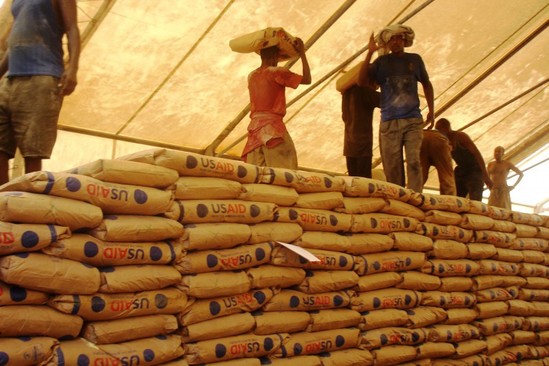My twitterfeed is made up of Chinese, Indian, Russian and Brazilian foreign policy analysts – and while most of them stricly comment on international issues, domestic concerns frequently slip in. During the last days, Russia’s and China’s twitterati commented on their respective protests and corruption. Brazilians despaired over a policy strike that imperils this year’s Carnival in Rio de Janeiro. Yet perhaps the most intriguing conversation over the past days took place in India after it emerged that the country’s Finance Minister Pranab Mukherjee had commented in Parliament that India no longer needed British aid payments, describing them as “peanuts”.
Several of the Indian twitterati I follow criticized the Minister for belittling British aid of about $440 million per year (making it India’s biggest bilateral donor) while more than 300 million Indians still lived under the poverty line. Yet a considerable number of tweets expressed implicit approval, pointed out that the World Bank now described India as a “middle income country”, and saying that receiving foreign aid compromised India’s image of a rising global power. Despite some party-internal resistance, Great Britain’s government announced that it would continue sending aid to India’s poorest regions.
Perhaps to stave off any criticism, Bill Gates said in an article that his foundation would also stay in India, stressing that more poor people live in India than in all 48 countries of sub-Saharan Africa combined. While non-state actors such as the Melinda and Bill Gates Foundation will be able to continue their work in India for now, there is little doubt that foreign government’s development agencies’ days in India are numbered. Despite continued poverty in some parts of India, South Asia’s giant is becoming simply too big, powerful, dynamic and rich, making aid payments to it politically too costly, especially in crisis-ridden Europe.
Read also:
Book review: “India in Africa: Changing Geographies of Power” by E. Mawdsley and G. McCann (eds.)
Book review: “The Dragon’s Gift: The Real Story of China in Africa” by Deborah Brautigam
Brazil in Africa: Bridging the Atlantic?
Photo credit: Wikimedia Commons









